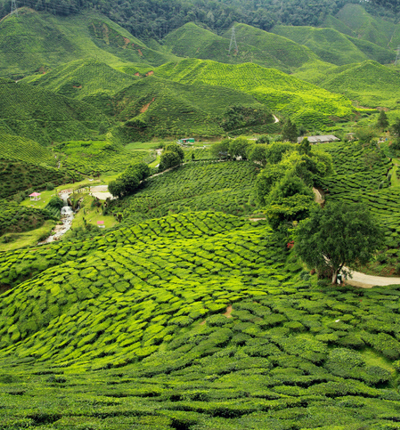
Unilever's Kenyan tea workers appeal to the UK Supreme Court
Over 200 Kenyan nationals are currently seeking leave to appeal to the Supreme Court over a legal claim that the London-based corporate giant, Unilever Plc, failed to protect them from the foreseeable risk of ethnic violence on a Unilever tea plantation in 2007/08.
Posted on 09 July 2019
These victims are living with the debilitating effects of lifelong injuries and psychiatric trauma, many of whom can no longer work. Instead of helping these victims Unilever has fought hard to prevent the claims from proceeding"
Daniel Leader, International Solicitor at Leigh Day
Law firm Leigh Day represents 218 claimants who were victims of the violence, including the families of 7 victims who were brutally killed, 56 women who were raped and many others who were subjected to serious physical attacks.
The ethnic violence broke out in December 2007, following the Kenyan general election result. Large groups of attackers invaded Unilever’s Tea Plantation in Kericho which has an estimated residential population of over 100,000.
The numbers of employees alone represented 11% of Unilever’s global workforce, the largest concentration of Unilever employees anywhere in the world.
Workers who were not indigenous to the area, together with their families, were targeted with clubs and machetes. Hundreds of workers were attacked, and the attackers committed widespread sexual violence.
Lawyers from Leigh Day who are acting on behalf of the workers contend that Unilever placed their workers in a position of serious risk because most were from tribes that are not indigenous to the area and so were targets of harassment and violence during periods of social unrest, specifically during elections.
Daniel Leader, solicitor from law firm Leigh Day, said:
“This was the biggest risk to the largest concentration of Unilever workers anywhere in the world. Unilever’s Kenyan tea workers were put in a vulnerable position by Unilever and yet the risk they faced was not considered.
“The victims are clear that they warned managers about the threats they faced and yet Unilever failed to take measures to protect them, although they did protect management housing and company assets.
“These victims are living with the debilitating effects of lifelong injuries and psychiatric trauma, many of whom can no longer work. Instead of helping these victims Unilever has fought hard to prevent the claims from proceeding in the English courts, in the knowledge that the case cannot proceed in Kenya and thus deny them any access to remedy.
“Unilever has a clear duty of care to these employees. The way in which Unilever has dealt with this case to date calls into question whether they have a genuine commitment to the United Nations General Principles on Business and Human Rights.”
The legal claims are being brought with the support of Kituo Cha Sheria (a leading Kenyan justice NGO) and REDRESS (an international human rights NGO).
The Kenyans claim that Unilever failed to take appropriate steps to protect them from the foreseeable risk of violence whilst taking steps to protect management housing and company assets.
Background
The case was filed in the London High Court in 2015 and Unilever has vigorously fought the case to persuade the English Courts to decline jurisdiction in favour of the Kenyan Courts.
However, the Claimants are clear that there is no prospect that the case can proceed in Kenya without placing them at significant risk of violence or intimidation.
The Kenyan claimants argue that their claims necessarily concern Unilever Plc in London because the crisis management expertise upon which Unilever Tea Kenya (UTKL) relied, resided in Unilever Plc.
Further, Unilever PLC was responsible for ensuring that effective procedures were in place in UTKL and that people were adequately trained.
The Claimants argue that UTKL failed to adequately assess, plan for and respond to the risk of violence precisely because Unilever PLC had failed to ensure adequate crisis management systems were in place.
The High Court initially rejected the majority of Unilever’s arguments and held that there was evidence that the victims would not get justice in Kenya and that Unilever Plc had ”assumed apparent control of the content and auditing” of the relevant policies and procedures.
However, the judge also ruled that in her view the risk of violence was not foreseeable on the Plantation (because there had not been similar violence on the Plantation in the past) although she found that the violence had been foreseeable in Kenya generally and even in Kericho town which borders onto the Plantation.
Lawyers on behalf of the Kenyan workers argue that if violence was foreseeable in Kericho it follows that it was foreseeable on the unfenced Plantation which sits right next to the town.
The Claimants appealed to the Court of Appeal on the grounds that the judge was wrong in law.
But that point was not ultimately addressed by the Court of Appeal, which overturned the High Court’s assessment as to the case against Unilever Plc and declined jurisdiction on the basis that there was insufficient evidence that Unilever Plc was actively responsible for the alleged crisis management failings of its Kenyan subsidiary.
Unilever has therefore succeeded so far in blocking any prospect of justice for their Kenyan workers according to Leigh Day.
The Claimants are currently seeking leave to appeal to the Supreme Court. Grounds of appeal were lodged on 29 August 2018.

